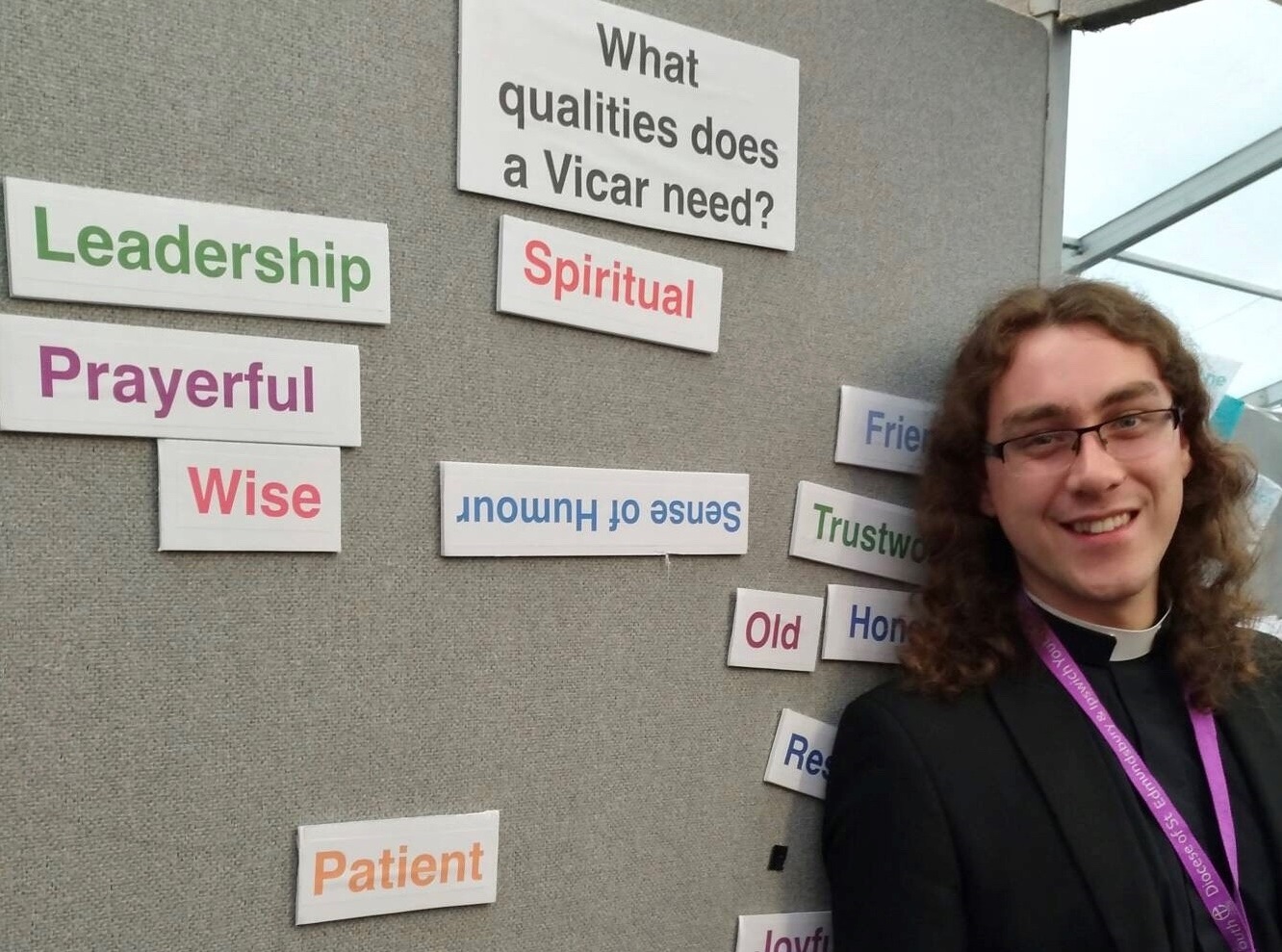Explore

The vast majority of clergy serve in parishes across the country as vicars or rectors and lead a church through prayer, teaching, and worship, enabling God’s people to be better disciples of Christ.
They preside at Holy Communion, baptisms, weddings, and funerals, walking alongside people in their joy and in their grief. They are generous to those who are different, striving to be mature, self-aware, and willing to learn. They are committed to the mission of the Church of England, working with others to build up the Church through recognising where God is at work in the world and in the lives of others.
Everyone who is ordained as Priest or Distinctive Deacon will, as part of their training, serve in a parish for about 3 years as what are known as Assistant Curates - sharing in the 'cure of souls' of that parish with the Bishop and the local Incumbent (that is, vicar or rector).
How do I become a vicar?
Do you believe God is calling you to serve as a vicar? To become a vicar, sometimes referred to within the Church as an incumbent, you must first be ordained. After training at one of the Church of England's theological institutions, you train for up to three and a half years in the Diocese of Chichester as an assistant curate. Training for ordination is unlike any normal recruitment process. It is best seen as a time of discernment, and is therefore more like a journey or pilgrimage than an examination.
It is important you continually pray about your vocation throughout the discernment process.
Max Drinkwater: To hear the way the children have received the message is wonderful
Sundays are busy, we look after two churches, but we make sure to give time to the pastoral side of worship as well. It’s not just services to lead but people to see.
Throughout the week there’s a lot going on. We have weekday services attracting different congregations to come and worship. It’s lovely to see different people and how our different styles of service speak to them. There’s plenty of visiting to do. We have many retirement homes and care homes, so we go in to take services or bring people to church.

Schools are wonderful for engaging with families, not just the children but the parents too. We take ‘Open the Book’ into primary schools, and I’ll sometimes lead assemblies. I find school work particularly rewarding. At the end of the day you’ll overhear them say what a wonderful story they’d heard. They’ll retell the story to their family or carers. To hear the way the children have received the message and are passing it on is wonderful.
Weddings, baptisms and funerals are a big part of our time. These are the occasions where people come to you and say, “This is when we need you in our lives”. It’s such an important part of our ministry.
My own journey began at university. I spoke to my chaplain, who was very helpful supporting me to discern what God was calling me to. I always say though the first seed was planted as a teenager when I went to Walsingham, a youth pilgrimage they still run. I went with my church youth group. There was a talk on vocations and ministry, which was the first time I ever thought ministry might apply to me. It was the first time anyone had even spoken to me about ministry or vocation or what it might be to take an active role in church leadership.
At the time I thought “that’s something I might come back to”. It wasn’t an immediate, “I must follow this up”. Nonetheless, from then on it was always there, nagging away at the back of my mind.
Max Drinkwater